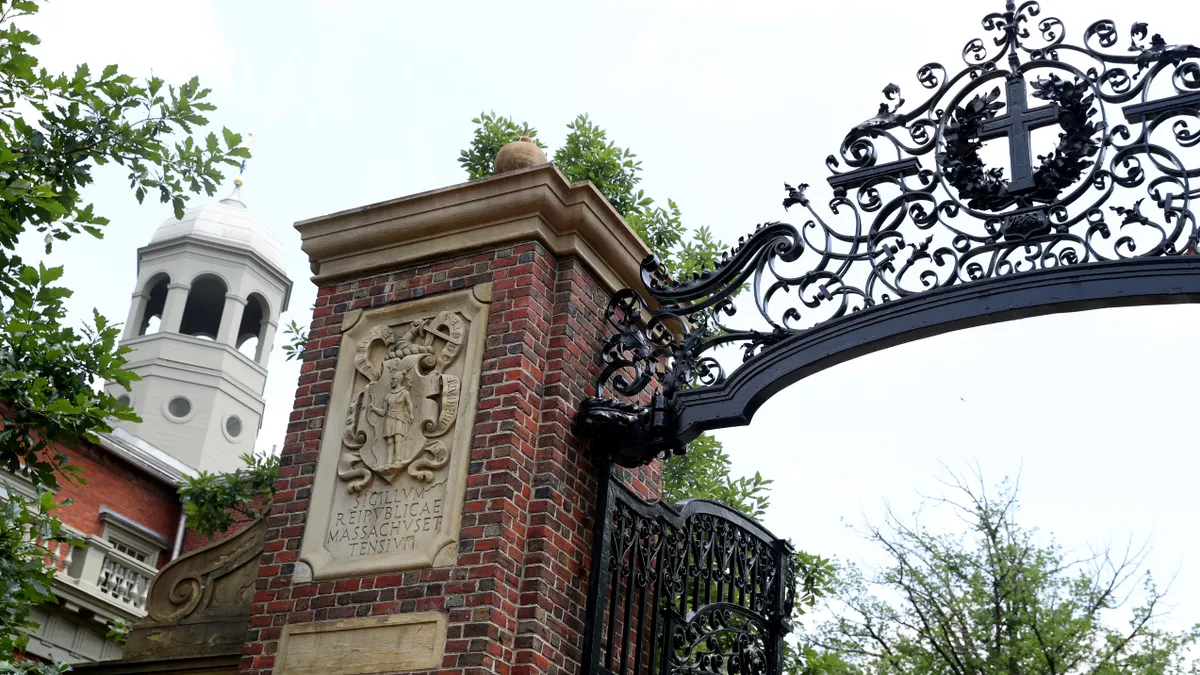Dive Brief:
-
“It’s highly likely we’ll have two years in a row of declining revenues,” Harvard University CFO Thomas Hollister told The Crimson Tuesday. “We haven’t seen that at the University since the depression in the 1930s.”
-
Impacts from the pandemic have challenged the university, which is currently operating fully remotely, since last spring; its revenue also dropped by $138 million in fiscal year 2020, representing a net loss of $10 million, as compared to a $308 million surplus in 2019, the Crimson said.
-
Though he didn’t share a number, Hollister expects revenues to decline once more in 2021 due to continued uncertainty over revenues and expenses.
Dive Insight:
Harvard is not alone in its financial difficulty; in a study of 705 institutions by the National Association of College and University Business Officers (NACUBO), over 40% of respondents said their institution's cash flow declined in 2020, stemming from lower enrollment and lost revenue from student housing, dining and parking.
Unlike many schools, though, Harvard did not resort to layoffs or furloughs, which Hollister called “a great credit to the entire Harvard community,” adding that “everyone has been terrific at managing our expenses, and that has made a huge difference.”
In an effort to manage costs and reduce headcount without layoffs, in June 2020, the university unveiled a $71 million early retirement program for staff. Staff who opted in would receive an additional benefit equal to one year of wages.
Nearly half of Harvard’s almost 1,600 eligible employees opted to retire early, according to a September 2020 letter from University President Lawrence Bacow, according to The Crimson.
Hollister declined to share whether the university, going forward, would be relying on spending cuts, hiring freezes or capital spend reductions.
“Budgeting for this year was an adventure for everyone, because there was so much uncertainty,” he added. “We need to remain very careful, because it is so dynamic and uncertain still.”
Despite the anticipated downturn, the school expects its financial situation to improve once the fall semester begins and faculty, staff, researchers and students filter back onto campus. The students’ presence, Hollister said, will be helpful in providing tuition and room and board revenue.













